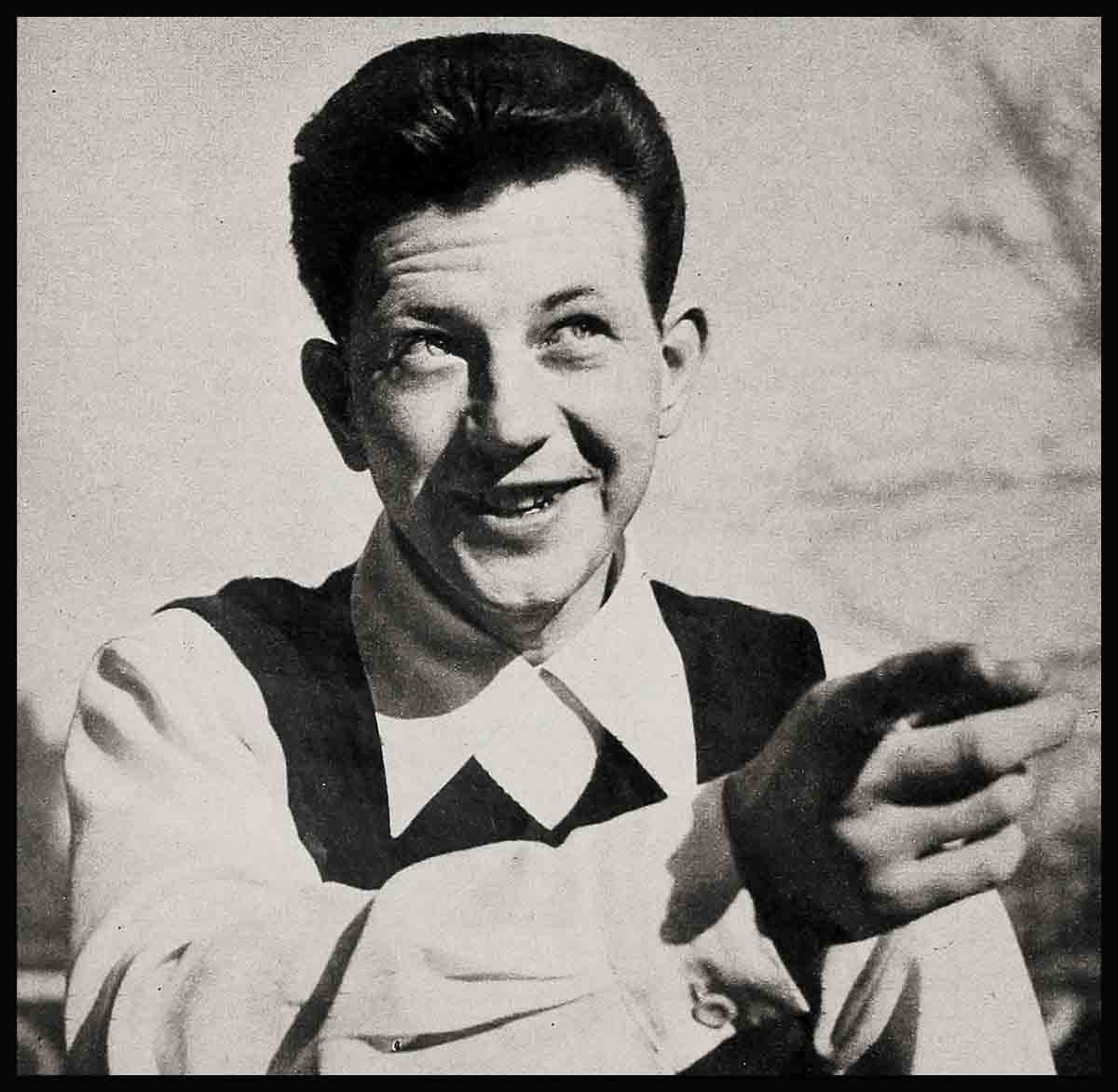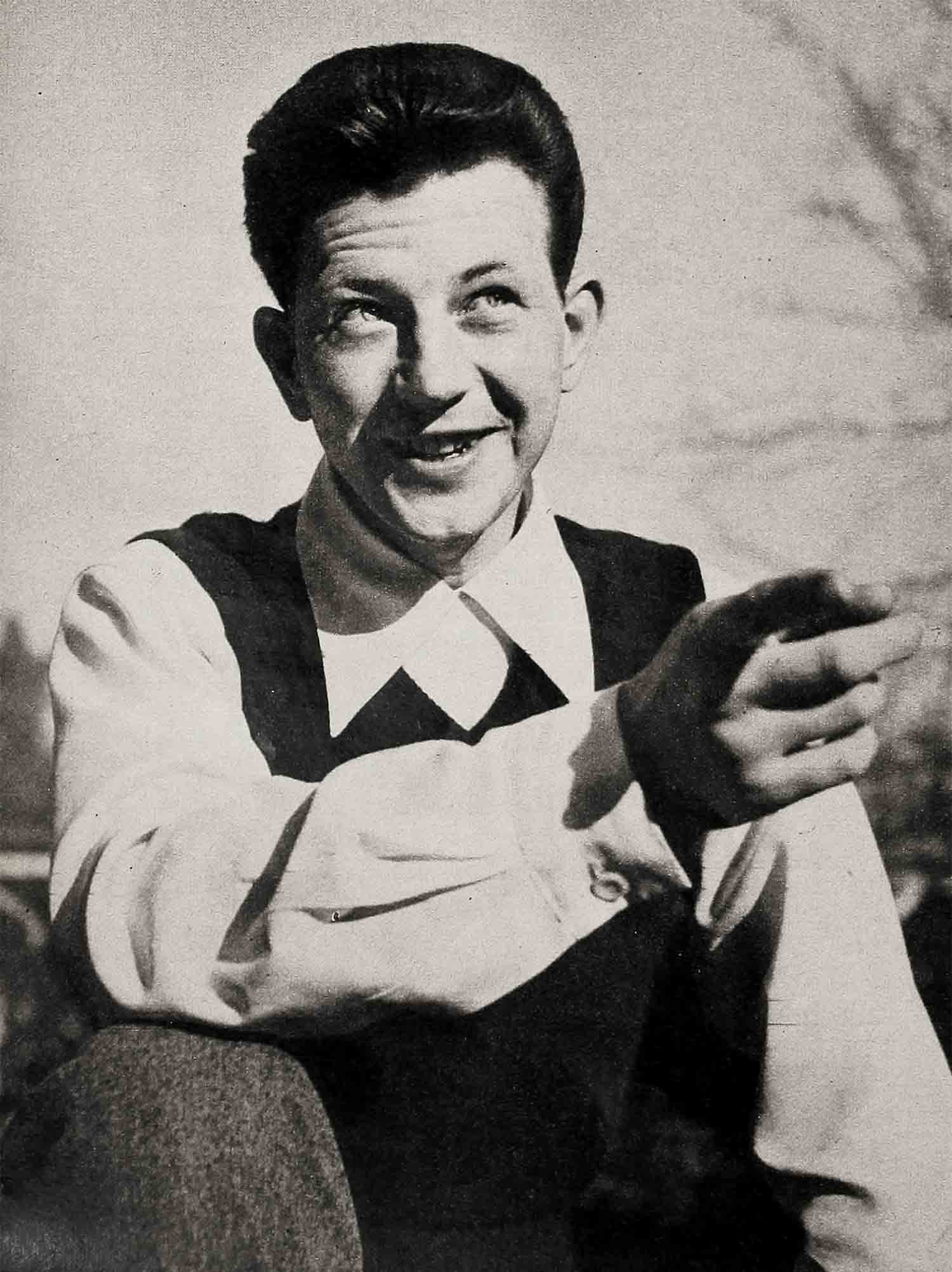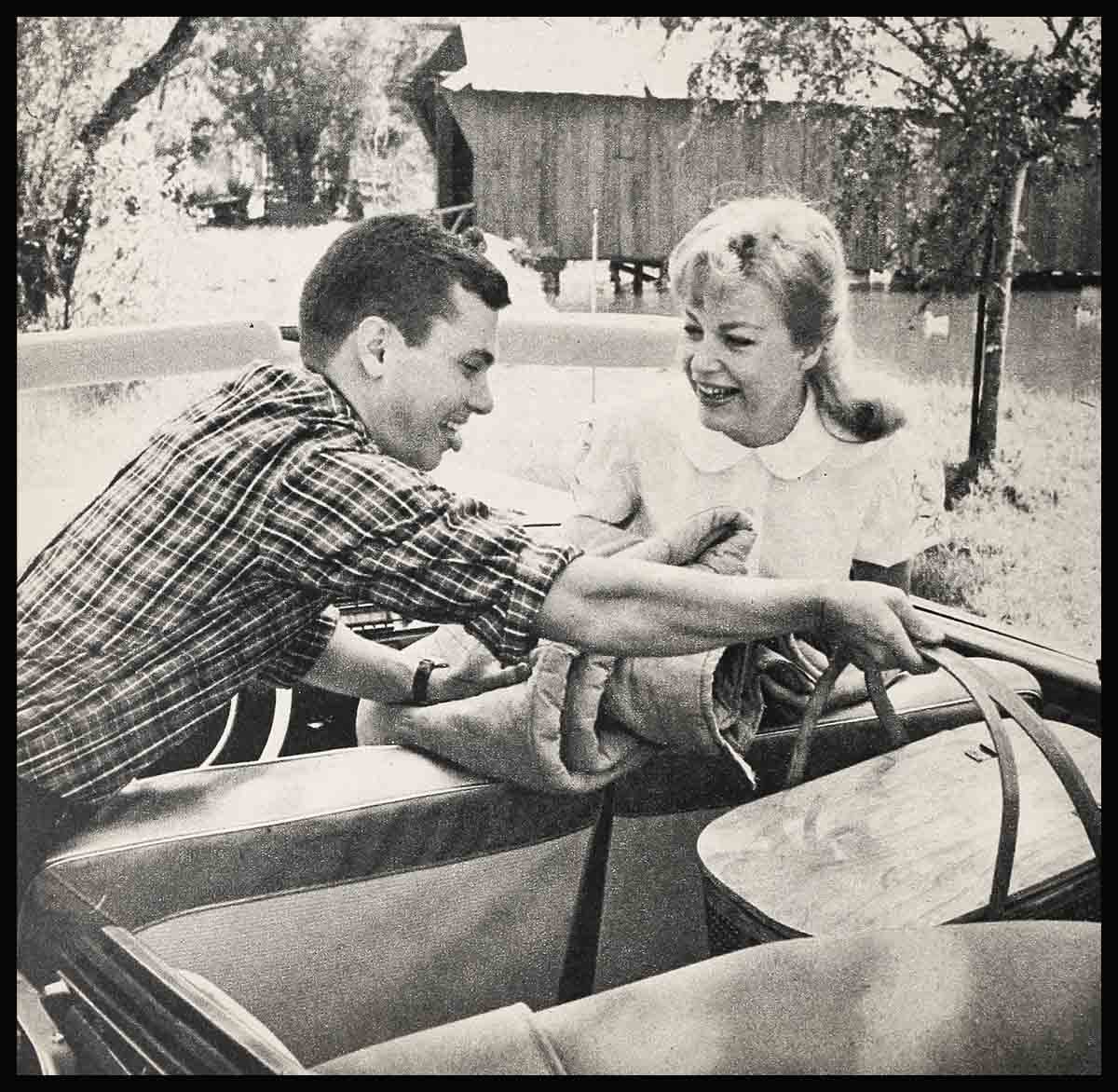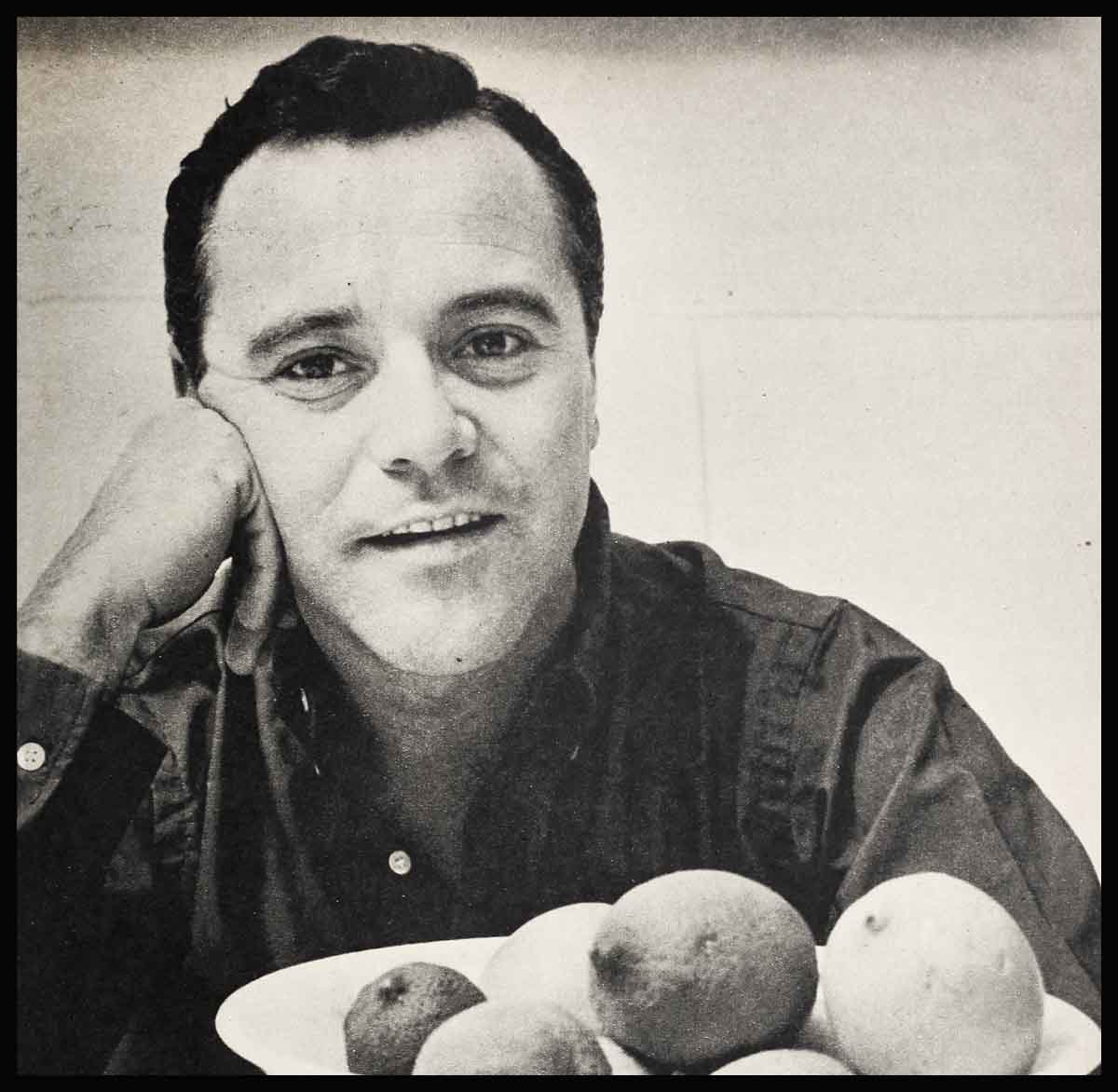
Donald O’Connor: “The Road I Travelled”
A child has to make up his own ideas to begin with. Probably, because of my unconventional upbringing in the theater, my first spiritual conception of life was completely out of the normal groove—I worshipped people. All people and especially those who made up the audiences I first met as an infant when my mother and father would carry me on stage at the end of their performance.
There would be a round of laughter and applause, and apart from the “ham” in me liking it, something deeper was stirred. I know this because up to about the age of seven or eight, and even afterwards, I had a sort of supernatural awe of our audiences. . .
As my family toured the country sickness would strike us, and even death, but nothing like that ever seemed to happen to the people. There they would be every night, no matter what theater, no matter what town, looking up at us, laughing and responding exactly the same as always. It never struck me that they were made up of different individuals. And since I also sensed that our own fate depended directly on their feelings toward us, and we deferred to them in all things, adjusting our lives, you might say, in a constant effort to please them, they actually took on the stature of deities to me.
This was my belief before I even knew that I was a Catholic, and I haven’t outgrown it yet altogether, even though in time I turned formally to my own religion. There is a power in people . . . a power for good. This ties in with my present professional thinking, of course. My time is spent thinking of what to do for them, but behind it is the knowledge that they have done everything for me. My family life was the troupers’ life actors have written about so often. We were on the road most of the time. We liked to think of Danville, Illinois, as our home, because an uncle actually owned a house there, and it made us feel less like nomads. The truth was we couldn’t even pause for tragedy. A sister died in one town, and two months later, when I was just over a year old, my father finished his performance while we were playing another city, walked into the wings and suffered a fatal heart attack. We would bury our dead and head for the next date, torn with grief even as we had to improvise new routines to replace the gap in the act left by the one who was gone.
In the mystic life that children lead maybe mine was not too strange. When I was singing or dancing for people I felt most justified for being alive, and what I was doing was almost a form of adoration.
“They like you tonight,” my mother might whisper to me on stage. Nothing would please me more and I would throw myself into the rest of the number with everything I had.
At that age a youngster doesn’t often distinguish between strangers, and when I had contact with one, even on the street, there was the feeling that he was always the same man. For instance, no matter what town we might be playing, if occasionally I got into some difficulty, fell, or feared crossing a busy street, there was always the big man who picked me up or helped me out and called me, “Sonny.” He was always very tall, very strong and he’d win my complete confidence. To a child anyone who is friendly seems that way and such men are everywhere, of course. But to me he was one of my “people,” and this added to the illusion that they were omnipotent and benevolent.
Children brought up in homes have their fairybook heroes to help conjure up a magical world. Perhaps I, without such background, and yet with an active imagination, had to create my own and there was nobody but the people in the audiences to choose from.
There were exceptions, however. Strange little boys of my own age were not placed in such a category. They were just boys and you had to keep an eye out for them.
One winter we were in Spokane and between shows I was playing in the alley back of the theater with some empty boxes, just kicking them around. Then a kid my own age (about six at the time) showed up and claimed I was breaking his boxes. Before I knew it he had hit me and we were fighting. Even though he was smaller than I, as I remember it, he gave me a licking. But my lesson came not from that but from what happened when I yelled that he had won and I wanted him to get off me.
He got up and walked away. “Hey! Don’t you want your boxes?” I cried.
“What boxes?” he asked. I knew then that they hadn’t been his in the first place. He had just been looking for a fight. No . . . boys were just kids. They weren’t people. Neither were little girls, perhaps because you didn’t see them often in a theater, or maybe just because they were little girls. At that age that was reason enough!
It may strike someone that a kid as mixed up as I was spiritually and spending most of his life around theaters, hotels or boarding houses might easily have gone wrong. Yet I cannot remember ever being considered a vicious boy.

The worst family stories about me have to do with my dislike of being petted by anyone, even as a baby. If a strange woman would pick me up and coo at me I would drool horribly on purpose because I had learned that this made for a distasteful sight and I would be quickly put down.
And also, for a short period, I was a stink bomb thrower. I somehow had gotten hold of strips of film and learned that if you lit one and stamped it out immediately it would smoke for a while producing an unpleasant odor. What annoyed my mother particularly was that I used to throw most of them in the doorways or porches of our landladies. This was a direct violation of theatrical ethics; you often don’t like your landlady but the nature of your vocation is such that you soon learn to treat her with the greatest courtesy. She stands for shelter and food in a foreign land—and you are always in foreign territory as an actor.
A person can take many roads to God—a love of people was the one I stumbled on. It wasn’t a bad one. All the qualities of spirituality were present even if it was perhaps only a form of make-believe. As a matter of fact there is a healing power in people under certain circumstances, as I learned one day when I had grown up and we were playing a New England city.
Our act was half-way through when I began to realize that we were winning no reaction at all from a half dozen patrons seated in a group in the front row. They just stared at us devoid of any expression at all. I began to concentrate on them but with no result. Finally, a little annoyed, I even heckled a bit. The idea of this, as far as a performer is concerned, is not to get any satisfaction from insulting the person he is addressing but to stimulate a response, any sort of response, after which he quickly re-establishes a friendly relationship. But I got nowhere with my frozen six.
When the next show started and I ran out on stage I was disagreeably surprised to see them still sitting there. Again I worked on them and again I got nowhere. The rest of the actors were angry about them, too.
As soon as I was offstage I ran up front to the manager to complain that a rival theater must be sending over “deadpans” to spoil the show and bother the actors—a practice not unknown in show business. He was sitting in his office with another man and came out into the hall to talk to me. He asked me whom I meant and I described the group. When I got through he smiled and told me I was wrong.
“The man in my office is a doctor from the state insane asylum on the edge of town,” he said. “Those six persons who bothered you are his patients. He often brings groups of psychotics to the theater because they are greatly benefited just being in the presence of normal people. While you were feeling annoyed they were feeling proud that they could be there. But because it was an unaccustomed event to them, they were a little too nervous to appreciate what was happening on stage. They were being thrilled by a wonderful adventure of their own.”
He introduced me to the doctor who talked further on the subject. And I was really thrilled by his words. It’s funny how the knowledge that one has helped anyone, even accidentally, warms the heart. Every performer backstage felt good about it when I told them.
But my odd fancy, immortalizing the people in my audiences, couldn’t last forever. It got a bad blow in Long Beach, California, when I was about eight years old. We were playing a short engagement. While we were in a cafeteria the earthquake of March 10, 1933, which took the lives of 127 people and injured more than 4,000 others, began rocking the city. I was frightened, of course, but not any more than the older people. But a little while later, when things had quieted down and we started to walk down the street, we had to pass a building where a heavy steel marquee had crashed to the sidewalk killing 15 people. The forms of some of the victims were still lying there, covered with blankets, and suddenly I wanted to scream but couldn’t. I waved my arms and my mother bent down to speak to me.
“Donald! Donald! What’s wrong?”
I tried to tell her but not a word came from my lips. Up to that moment I had really believed that strangers lived forever and that only we, the O’Connors and the others in the theater world who were actors, ever died. But here were people lying dead who were just like the people of the audience whom I revered. For the next two weeks I walked around dumb—the shock had taken away my voice. Believe it or not, but at the age of eight I was already suffering from having my faith shattered!
When I finally could explain it to my mother she was understanding enough not to laugh about it, and afterward when we’d have periods of quiet together she’d tell me about the teachings of Catholicism. But either I wasn’t ready for it, or I just couldn’t make the switch from what I had believed. It took somebody else to get me thinking about religion—a seven-year-old boy whose father was a Presbyterian minister.
This was in Chicago while we were laying off between theater bookings. The boy was a neighbor, we liked each other, and one day I visited his house. I sensed immediately that his father was not like the priests who came to visit us, nor was his house like the parishes I knew. It bothered me. Perhaps because I had lost one faith and was trying to understand the one I was born into, it was disturbing to feel that there might be still a third to worry about!
When I got a chance I asked the boy about it and I remember his attitude; since he was the son of a minister he acted as if he could easily explain the whole thing to me—and he began. I don’t have any recollection of what he said exactly but out of our talk I got my first knowledge that there were lots of religions . . . yet all very much the same. One thing bothered me and this question I can recall asking.
“Then people are the same . . . no matter who they are or where they are?”
He said they were and I felt better. Because I still relied on people, even though they had tumbled from their pedestals. People still made up most of my world. I knew I would always have to depend on them.
This may seem like odd kind of talk for small boys to engage in, and friends sometimes scoff and refuse to believe me when I tell them about it. For a while I started wondering myself if this ever happened, if seven and eight year olds were really talking religion. Then the other morning I overheard my daughter, Donna, who is only five, talking about a playmate of hers to our maid one morning at breakfast.
“Betty is not like me. Do you know that?” Donna said.
“Oh. Is she taller?” asked the maid.
“No, she’s not religious like me,” said Donna.
The maid gave a little gasp. So did I where I was sitting just outside the breakfast nook. And I listened closely for the maid’s next words.
“Are you sure, Donna?” she asked.
“Oh, yes,” Donna said. “She told me. She isn’t religious like me. She is religious like she. She said it wasn’t the same at all. And I don’t like it.”
“Oh, don’t you worry,” the maid said comfortingly. “I bet in the long run it gets you to the same place.”
I could tell from Donna’s voice that she felt better immediately. And so did I.
Donna goes to Sunday School while I had little or none of such training. By watching what she goes through trying to understand the perplexities of the world, even with this advantage, I can appreciate that my fanciful philosophy as a youngster was not too weird. Donna knows that there is a distinction between people and God, but she is also vague enough about it to say things like, “Of course, I was very young when Christ died.”
In her way she will come to the same faith that I came to in my way. I feel confident that even those friends of mine who are non-believers in God, and who are so articulate in defending their atheism, will eventually find the security of following in His footsteps.
By whatever road I traveled I got where I longed to be and with an understanding of my relationship to Him. Somehow I have learned what prayer is, that to ask for the specific is meanness and only to seek the all good should be the purpose of such communication from the soul. One’s conscience, one’s sense of good and evil make this all plain in time.
And all this I learned in my own sort of Sunday School . . . the dingy theaters of the country . . . where I started off by worshiping the plain people who attended them!
THE END
—BY DONALD O’CONNOR
It is a quote. MODERN SCREEN MAGAZINE JULY 1952





No Comments